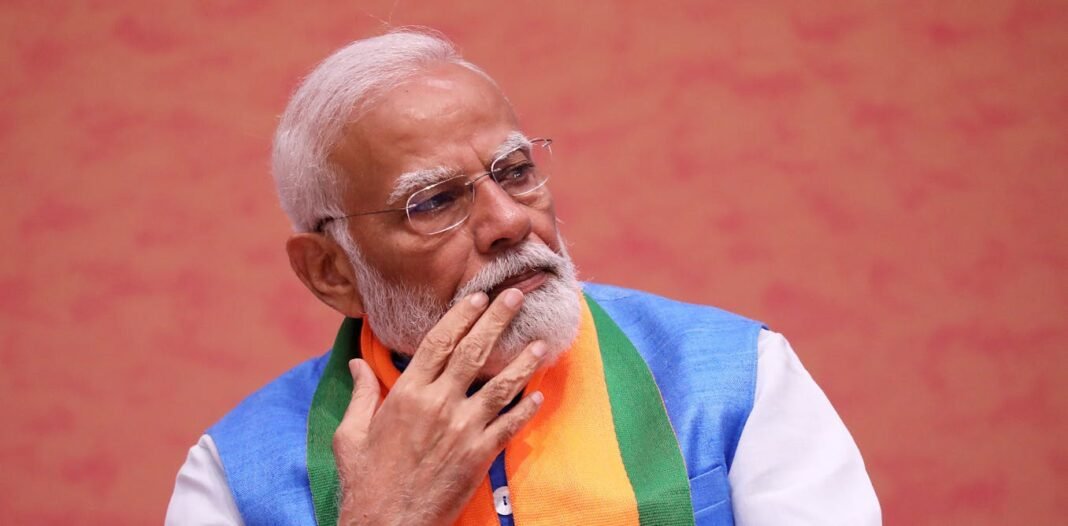India’s Economic Growth Faces Hurdles: What It Means for You
India’s post-Covid economic recovery has slowed, facing challenges like weak consumer spending, low private investment, and global uncertainties. According to RBI forecasts, the economy is projected to grow at 6.4% in FY25, down from 8.2% in FY24, with only a slight improvement expected in FY26. Adding to the uncertainty are Modi Govt’s Economic Policies shifts from a new U.S. government under Donald Trump, which could impact India’s trade and investment landscape.
Budget 2025: Relief for Salaried Class but Will It Be Enough?
In response to economic concerns, the Modi government rolled out a major tax relief package in Budget 2025. Individuals earning up to ₹12 lakh annually are now exempt from income tax—a move aimed at increasing disposable income and boosting urban consumption. While this could encourage spending and investment, experts believe it may not be a game-changer for overall growth.
Public opinion is divided on the government’s economic management. In the latest Mood of the Nation survey, 52.3% of respondents rated it as “outstanding” or “good”—a slight improvement from August 2024. However, 28.8% still rate it as “poor” or “very poor,” indicating ongoing concerns. Only 34% believe the economy will improve in the next six months, while 57% expect stagnation or decline. This growing pessimism likely contributed to the BJP’s lower-than-expected performance in the 2024 elections.
Can Tax Cuts Solve Middle-Class Woes?
The middle class, estimated at 570 million people, faces rising costs despite tax relief. High inflation (5.2% in December 2024), soaring food prices (8.4% inflation), and expensive fuel continue to strain household budgets. While 43.6% of survey respondents feel the tax exemption will improve their savings and spending, 34.6% remain doubtful.
Despite these concerns, 68% of respondents appreciate the budget’s focus on growth, job creation, and support for the middle class and farmers. However, nearly a quarter remain sceptical about its long-term impact on India’s economy.
Does the Government Favor Big Businesses?
A long-standing perception persists that Modi Govt’s Economic Policies mainly benefit large corporations. Over 51% of respondents believe big businesses gain the most from government decisions, though this is slightly lower than the 58.3% in the previous survey. On a positive note, support for small businesses and farmers has increased, reflecting government efforts to aid these sectors through expanded MSME loan limits and new agricultural initiatives.
Former Prime Minister Manmohan Singh, who passed away in December 2024, has seen a rise in public approval, with 40% now believing he handled the economy better than Modi (up from 35%). However, Modi still holds majority support at 51%, though this has declined from 57.4% in August 2024.
Also Read: Government Policies
Job Market and Inflation Woes Continue
Rising costs and job uncertainty remain major concerns. About 64.3% of respondents say managing household expenses has become harder, up from 63% in the previous survey. Real wage growth in urban areas has slowed significantly, from over 10% in Q3FY23 to just 3-4%.
The unemployment rate rose to nearly 8% in December 2024, the highest since August 2024. A staggering 76.2% of respondents believe unemployment is a serious issue, though this is slightly lower than the 78.3% in the previous survey. Despite government initiatives like the ₹2 lakh crore PM employment package, tangible improvements are yet to be seen.
Additionally, concerns about AI replacing jobs are growing, with 60.2% fearing automation will displace the younger workforce. A vast majority (82%) believe India should consider implementing a universal basic income to address job losses and financial instability.
Investment Trends: Playing It Safe
With economic uncertainty looming, Indians are becoming more cautious about investments. Only 13% prefer investing in stocks, while gold and insurance have limited interest. The most popular choice? Real estate—nearly 50% of respondents favour land as the safest long-term investment.
As India navigates economic challenges, Modi govt’s economic policies faces increasing pressure to address inflation, unemployment, and financial stability. Whether recent policy measures will be enough to restore confidence remains to be seen.




